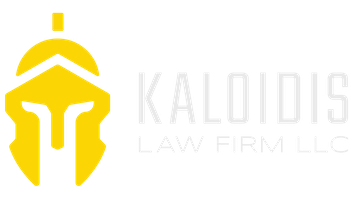[blocksy-content-block id="592"]
The crime of arson is frequently misunderstood because that is defined so broadly in Connecticut. Arson can include reckless behavior causing a fire to damage property, such as igniting an explosive device. Additionally, arson includes intentionally burning forest land or burning down one’s own property in an attempt to get insurance money. Whatever the reason you have been charged with arson, it is important that you speak to an attorney as soon as possible. Arson is a felony in Connecticut, and your future could be seriously impacted if you are convicted. You could face a lengthy prison sentence and significant fines. If the alleged act of arson resulted in a person’s death, you could face a lifetime prison sentence.
Fighting for the Rights of Those Accused of Arson
In Connecticut, law enforcement officers are highly motivated to solve arson crimes because they can cost millions of dollars in lost or damaged property and can result in innocent victims’ deaths. One of the best ways to level the playing field and ensure that your rights are protected is to reach out to an attorney immediately after you are charged. Do not speak to law enforcement officers until you have spoken to your attorney. The aggressive criminal defense attorneys at The Kaloidis Law Firm, LLC are ready to fight for you, developing the best legal defense possible and negotiating aggressively with the prosecution for the best outcome possible.
Understanding the Elements of the Crime of Arson
Multiple laws prohibit reckless burning and arson in Connecticut. Arson can include setting fire to one’s own property, other peoples, and public property. The Connecticut criminal code recognizes three separate degrees of arson, each with its own penalties. The best way to understand the specific charges against you and the penalties are facing in your unique case is to discuss your case with an attorney. Your attorney may be able to negotiate a reduced charge.
Our attorneys will take the time to review the elements of each offense as well as the evidence the State claims to have. Each degree of arson is broken down into the next section. Every case is unique, and the attorneys at The Kaloidis Law Firm, LLC are ready to carefully consider the facts near the case and develop a unique and effective legal strategy.
First-Degree Arson
First-degree arson is the most serious arson charge and carries the harshest penalties. First-degree arson is starting a fire to damage or destroy a home, office building, warehouse, commercial structure, mobile home, trailer, railroad passenger car, airplane, boat, or other similar structure. Prosecutors must also prove that one of the following elements occur:
The penalties for first-degree arson are serious. First-degree arson is considered a class a felony, the most serious classification of felonies which is second only to Capital felonies that carry life prison sentences. If you are convicted of first-degree arson, you will face a jail sentence of 25 to 60 years in prison.
Second-Degree Arson
The crime of second-degree arson occurs when an individual—with the intention of damaging a home, office building, warehouse, mobile home, railroad passenger car, airplane, trailer home, boat, or any other similar structure—starts a fire or causes an explosion that causes a substantial risk of bodily injury to another person. The prosecution does not need to prove that the defendant caused an actual injury to one more person to convict a defendant of second-degree arson. Second-degree arson is a class B felony with a jail sentence between one and 20 years and a fine of up to $15,000.
Third-Degree Arson
A conviction for third-degree arson does not require the prosecution to prove that the defendant intended to destroy or damage property. The prosecution must prove that the defendant intended to start a fire or cause an explosion and recklessly damaged a building or structure. Third-degree arson is a class C felony with a jail sentence of up to 10 years and a maximum $10,000 fine.
Schedule an Initial Case Evaluation
If you have been charged with first, second, or third-degree arson in Connecticut, it is important that you discuss your case with an attorney immediately. Contact The Kaloidis Law Firm, LLC, to schedule an initial consultation and learn more about how we can fight for you.
